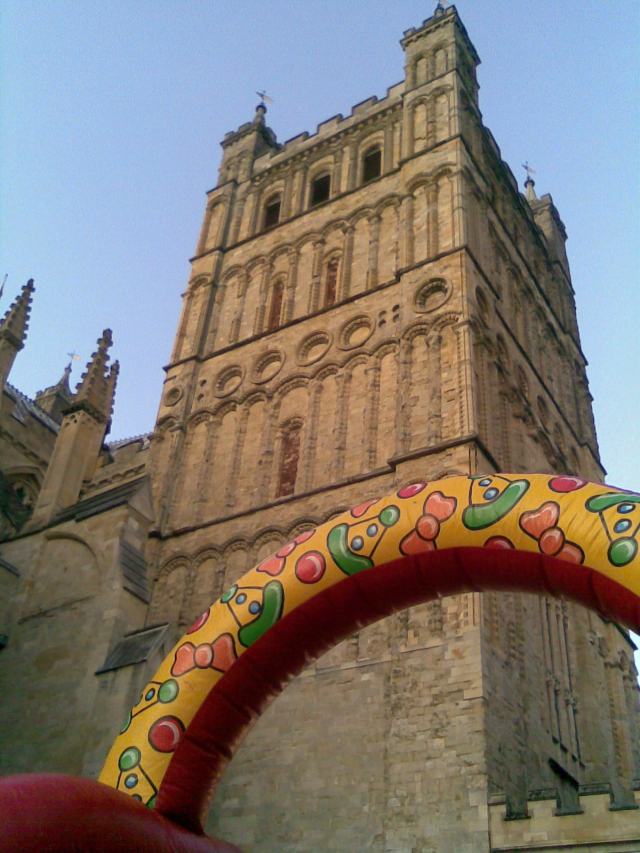Sometime in 1997 I went to hear Kevin Crossley-Holland give a reading at Exeter Central Library. I’d heard he was in town (there was no internet to speak of then) from my wife, whose school he was working in at the time. My literary life at the time consisted of rejection slips from magazines and the odd argument with Rupert Loydell. Wherever the action was happening, I was not at the centre of it.
I nearly did not go to hear Kevin give his reading. The English course I had studied at university had a compulsory module on Anglo-Saxon poetry, which I had hated. I failed my first year exam in it out of spite as much as my own laziness.
The poetry Kevin talked about and read from seemed to come from an entirely different universe. For a start, he told the story (everything he said came in the form of a story) of how these poems came to be written. In the way that great readers do, he made you feel he had been chatting to the authors about their work that very morning. There was context, therefore, and there was charm.
There was also the story of how and why he came to translate these poems in the first place. He had broken his leg, he told us, and needed to spend several months recuperating in hospital. With all this time now on his hands he decided he would translate these Anglo-Saxon riddles, known as The Exeter Book, and given to Exeter Cathedral library by Bishop Leofric in 1072. As you do. He was twenty-three at the time, he told us.
Each year, thanks to Kevin’s performance, I use some of these riddles to persuade two hundred teachers in my own seminars that poetry is for them and can be a part of their lives in the classroom. ‘It’s called The Exeter Book,’ I tell them. ‘Not the one in New Hampshire. This one, here.’ They look at me blankly. ‘You know the pointy silver statue by Clarks on the High Street? Those are riddles from this book.’ They begin to nod. ‘And you know the curvy writing on the pavement by Ann Summers?’ Now they’re interested. ‘That’s from this book as well. Hundreds of years old, it’s living literature we walk past every day!’
I should be on a commission.
7
Silent is my dress when I step across the earth,
reside in my house, or ruffle the waters.
Sometimes my adornments and this high windy air
lift me over the livings of men,
the power of the clouds carries me far
over all people. My white pinions
resound very loudly, ring with a melody,
sing out clearly, when I sleep not on
the soil or settle on grey waters — a travelling spirit.
Anon (trs. Kevin Crossley-Holland), from The Exeter Book

argh1 – Anthony, you haven’t given the answer, and I’m hopeless at riddles, despite thinking that I’m a poet, and maybe if I keep trying all day, I may twig,but…….argh! Thanks anyway – really value your site Tom Richardson, (Middlesbrough)
LikeLike
Ok, here we go: it’s a swan.
Good wishes as ever
Anthony
LikeLike
Thank you – bewilderment ended – aaaah! Tom
LikeLike
Luckily I came to AS writing on my own – took to it straight away. Still struggle with dictionaries and cribs but I get there.
Great post! Love this.
LikeLike
I never got there. That’s why I have Kevin Crossley-Holland!
LikeLike
You SHOULD be on commission…
LikeLike
I think I should too.
LikeLike